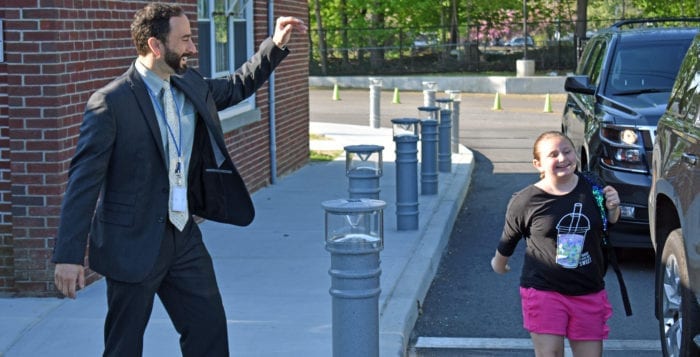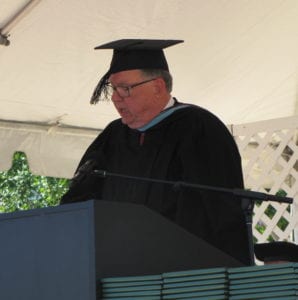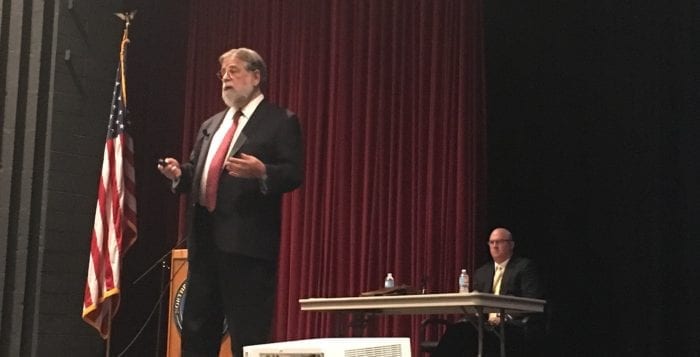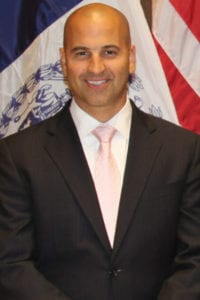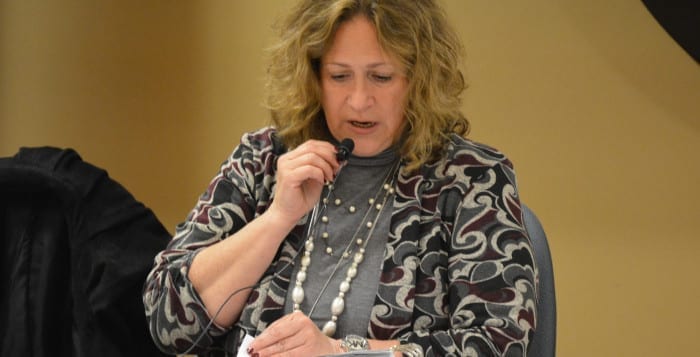By Alex Petroski
Barring support for an unforeseen write-in candidate, Comsewogue School District taxpayers already know who will be on their board of education next school year. Three candidates are running for three seats, two of whom are familiar faces while one is a newcomer. The terms for board President John Swenning, and Trustees Rick Rennard and Louise Melious are up this year. Swenning and Rennard are running again while Melious is not. She did not respond to a request for comment about her decision. Corey Prinz, a district resident since 2004, is the third candidate and is making his first bid for the board.

Prinz, 37, lives in the district with his wife and two kids — a second-grader and a fourth-grader. He has worked for Bank United as a commercial banker for about a decade. Prinz said he enjoys the small-town feeling in Comsewogue and sees it as a good place to raise a family. He was previously involved as a board
member for Comsewogue’s youth lacrosse program and said running for the school board seemed like a natural progression to get more involved.
“I’m excited – this is going to be a lot of fun,” Prinz said. “I go to bed excited about this starting up.”
He said his personal mantra in his position with the youth lacrosse program was to help kids succeed athletically, but more importantly “I want them to be good humans.” Prinz called this day and age in education and beyond very difficult for kids who face pressures based on academics, security concerns and socially, among countless others.
“We’re going through some changes here in the world,” he said.
Prinz said he thinks the current board has done a great job.
“Honestly, it’s about listening right now,” he said of his approach stepping into the position. “I don’t want to imply there’s something broken that I’m coming in to fix. It can always be improved.”

Comsewogue is known to have among the highest opt-out rates for standardized tests on Long Island, a charge led by Superintendent Joe Rella. While Prinz said he doesn’t have a problem with parents electing to have students skip tests, his kids have taken them.
“Eventually kids will have to deal with testing that isn’t pleasant and comfortable. I’m OK with them getting used to that,” he said.
Prinz said his focus will be on helping to create well-rounded offerings, with equal emphasis on education, athletics, music and any other areas important to students and community members.
Swenning, 54, attended Comsewogue schools and has been a board member since 2005. He works as a sales and design consultant in the home improvement industry. He and his wife Andrea have been married for 32 years and have four children, all Comsewogue graduates.
“I have been part of so many good things here and look forward to continuing to see Comsewogue accomplish great things for our students,” he said of why he decided to seek another term.
The district earned the prestigious accreditation by the Middle States Association of Colleges and Schools commissions on Elementary and Secondary Schools in 2017.
He said safety and security improvements will be a focus for the board going forward, as well as expanding the district’s project-based learning pilot program, which the district implemented in recent years as an alternative to typical Regents-based classes.
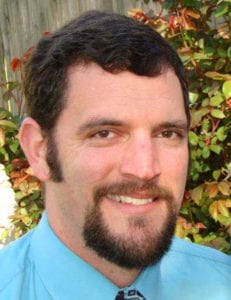
Rennard started on the board in 2014. He has lived in the district for 14 years and has a child at each level in the district — an elementary student, middle schooler and a high schooler. He is a teacher at Newfield High School in the Middle Country Central School District, and also serves as Boy Scouts cubmaster and assistant scoutmaster for Troop 354.
“The reason that I decided to run again for the school board is because after serving for four years, I feel very comfortable with the responsibilities and commitments that come along with the position,” he said. “I feel the district is moving in a very positive direction educationally, and I want to continue that movement.”
He also expressed a desire to continue the project-based learning program as a focus moving forward.
To vote on the district’s budget, a $32 million capital bond proposal and BOE candidates, go to Comsewogue High School May 15 between 9 a.m. and 9 p.m.


